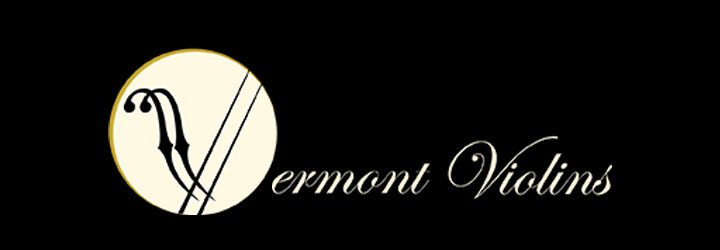Marit Danielson
A Brief Interview with violin-maker Marit Danielson
I sit down with Marit Danielson to ask her about her thoughts on women in music. Though Marit is a graduate from the Manhattan School of Music in Viola Performance and of the North Bennet Street School in lutherie, I have to research a bit to get these pieces of information. She is a prolific violin maker and bow expert. She has worked with some of the premier makers in the United States and has sold countless violins to professional players nationally and internationally. She is also humble and would much rather be on a walk with her dog, Bromley, than having me ask her questions while she is being audio recorded.
She has so many bows she needs to rehair or repair by the end of the day that I sit next to her workbench and interview her while she works. The thump of her knife is a constant throughout the conversation. She is a hard worker and wants to make sure each customer piece is done with care and precision.
JT: Do you see any advantages to being a woman in this field?
MD: A lot of the people that come into the shop and that we deal with are women: performers, teachers, moms. I guess that is an advantage. I was at a makers exhibition and there was a woman that came up to me and said, "I like the fact that you are a woman maker" and she actually purchased one of my instruments.
JT: Who where women that inspired you in this field?
MD: Well, there were obviously people that inspired me, but not because they were women. One of my teachers at North Bennet was a woman but it is not because she was a woman that I was inspired by her. I don't think this is relevant anymore. I went to a women's college and gender was not an issue, you do whatever you want. That is just the way I was brought up and gender was not even entered into it. In music conservatory, there were just as many women excelling. I do think I'm benefiting from what women did before me. But now it is just riding on what they did for us. Some people look for prejudice, but I don't tend to, so I don't see it a lot.
JT: It sounds like you haven't really seen obstacles or challenges.
MD: That's just it. I've seen no obstacles.
Marit with her dog, Bromley
JT: What do you like about what you do?
MD: I like that Bromley can go with me. I like that there is a chocolate shop just across the street from the shop. But in all honesty, making violins is very rewarding. It is rewarding to create something with your hands and hopefully it will sound wonderful.
JT: Do you think being a violist influences the way that you make instruments?
MD: Yes, I would say so. I tend to make pretty dark sounding violins.
JT: Do you prefer making violins then?
MD: I mainly make violins now, but that is a lot to do with my training. I worked with Joe Curtin and Gregg Alf and they pretty much exclusively made violins.
Once I turn of the audio recorder, Marit feels much more free and we continue chatting while she works. She has finished a rehair and is onto a tip plate repair now.
Maybe there isn't as much gender difference in music because women have always had such a large role and excelled in music because it is about talent. I'm also thinking of my teachers and a lot of them were women. I'm sure there are occupations where it is a bigger deal, but this is not one of them. She finishes by saying, "Sometimes it is easier to see the glass half full instead of half empty."


